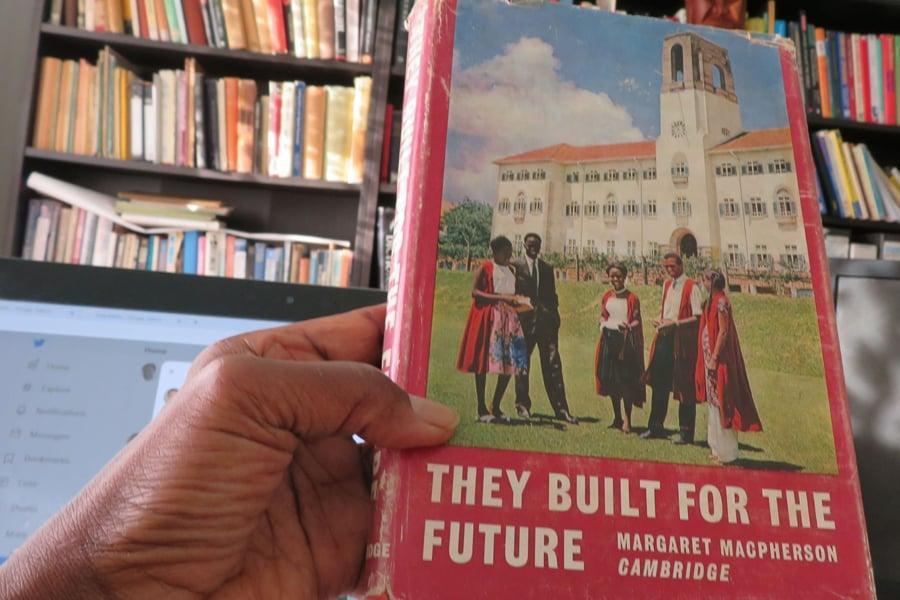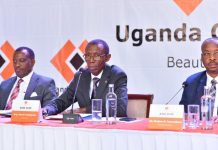Dr. Sam Akaki
Africa-Press – Uganda. I refer to your recent report, ‘Africans demand reparations for slavery, colonialism and exploitation in historic call’ (July 23, 2025).
William Shakespeare could have been referring to us, Ugandans and other Africans, when he wrote in the tragedy King Lear:
“When we are sick in fortune, often the surfeit of our own behaviour, we make guilty of our disasters the sun, the moon, and the stars; as if we were villains on necessity; fools by heavenly compulsion; knaves, thieves, and treachers by spherical predominance; drunkards, liars, and adulterers by an enforc’d obedience of planetary influence; and all that we are evil in, by a divine thrusting on. An admirable evasion!”
Why?
In case our “Honourable” African parliamentarians have missed it, our former European colonisers—including Britain—were themselves colonised and economically exploited by the Romans for hundreds of years.
In fact, the word colony comes from the Roman colonia, and London was founded by the Romans, who called it Londinium. The Romans also built Hadrian’s Wall in Britain—the first apartheid wall—to prevent British tribes from attacking them.
Moreover, according to Thomas Sowell, a prominent Black American intellectual and descendant of African slaves, it was the Romans who systematised slavery, capturing and selling their European subjects—mainly the Slavs—which gave rise to the word slaves.
Yet Europeans do not blame the Romans for their current drug addiction crisis or other social ills. Instead, they credit the Romans with bringing them civilisation: roads, architecture, sewage systems, religion, and democracy.
So why are we Africans so obsessed with colonialism, exploitation, and slavery?
Because, as Shakespeare wrote, we are “villains, fools, knaves, thieves, treachers, drunkards, liars, and adulterers.” Just look at the people around you—and those in our public offices: the executive, the judiciary, the legislature, and other government agencies.
Granted, Britain and other former colonisers committed atrocities. But these pale in comparison to what we, Africans, did to fellow Africans before colonisation—and what we have continued doing since independence just over sixty years ago.
Here is the genesis.
Before colonisers came, Uganda—like all African countries—did not exist in its modern form.
Instead, Africa was a borderless wilderness, with people confined to tribal enclaves, ravaged by dehumanising poverty, ignorance, tropical diseases, and superstition.
Our pre-colonial ancestors lived and died anonymously—without birth or death certificates.
Our natural resources were similarly wasted: fertile land, gold, diamonds, silver, uranium, oil, rivers, and tropical forests were unused, thanks to ignorance.
Even worse, our chiefs and their agents ventured into jungles, captured and sold fellow Africans to Arab slave traders—before the transatlantic traders arrived and internationalised the “business.”
Today, we owe much of what we have to the British Protectorate government—from the modern Ugandan state to basic economic and social infrastructure, from the clothes we wear and the God we worship, to the English language, now a global lingua franca.
Above all, they gave us modern education, health services, and a public administration system underpinned by the rule of law.
Mulago Hospital, Makerere University, Entebbe International Airport, the Owens Falls Dam, and Parliament are physical testaments to what the British bequeathed to us.
The title of the book on Makerere University, They Built for the Future by Margaret McPherson, aptly summarises what the British did.
Independence, then collapse
Tragically, all this changed after independence. African leaders seemed to adopt a common policy of “we destroy the future.”
They threw out the baby with the bathwater. Genocidal tribalism replaced the united front that once opposed colonialism.
From the Biafran War in 1967, to the 1982 Matabeleland massacres in Zimbabwe, the 1981–2010 killings in Luwero and northern Uganda, the 1994 Rwanda genocide, to the ongoing conflicts in South Sudan, Sudan and eastern DRC—Africans have killed more than 45 million fellow Africans since independence.
I documented this in my earlier piece Africa’s tragedies are not a result of British colonialism, published in The Guardian on July 27, 2027.
Post-colonial corruption and apartheid-like inequality have become the norm in Africa. A tiny elite lives lavishly off ill-gotten wealth, while the majority languish in poverty and disease—sometimes relieved only by our former colonisers, through NGOs.
Under British rule, “freedom fighters” like Yokosafati Engur of Lango, Abu Mayanja and Godfrey Binaisa of Buganda were mildly labelled “political agitators” and deported to Moroto.
Since independence, political agitators are called “terrorists” and jailed without bail or trial.
While the rich send their children abroad and fly to Europe for medical care, the poor must make do with dilapidated hospitals, broken schools, and corrupt local administrators.
Where once only a trickle of Africans like Elizabeth Bagaya, Sir Edward Mutesa, Julius Nyerere, Jomo Kenyatta, and Sir Seretse Khama went to Europe for higher education, today there’s a flood of Africans migrating en masse—seeking safety and opportunity in the lands of their former colonisers.
Some are even “volunteering” to become modern slaves in the Middle East.
Where are the reparations for African victims of African atrocities?
These ironies are lost on our African MPs, who now demand reparations for slavery, colonialism, and exploitation.
Why do they not also demand that African leaders pay reparations for our role in supplying slaves to Arabs and Europeans?
Why not demand reparations for the millions of victims of our tribal genocides?
Two reasons:
They are opportunistically jumping on the racist anti-white bandwagon, born and bred in the USA by angry, malcontent Black Americans.
They are trying to divert attention from the real existential threats facing Africa: tribalism, corruption, and population explosion.
The uncomfortable truth is this: blaming Britain and other former colonisers will not save us.
It will not stop corruption, or the election violence that is increasingly becoming clan warfare by another name.
Only by owning up to our selfishness and stupidity—and correcting it—can we save ourselves.
Source: Nilepost News
For More News And Analysis About Uganda Follow Africa-Press






